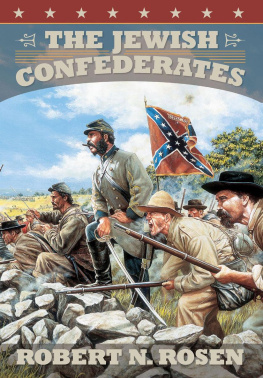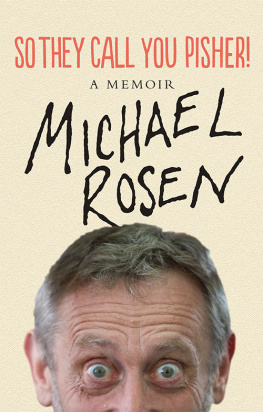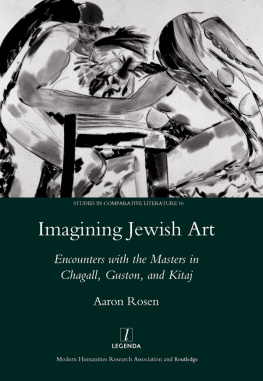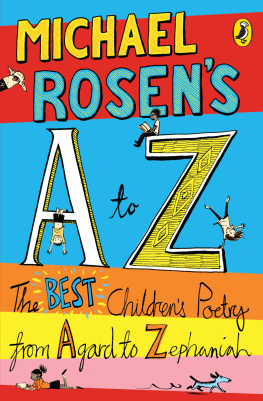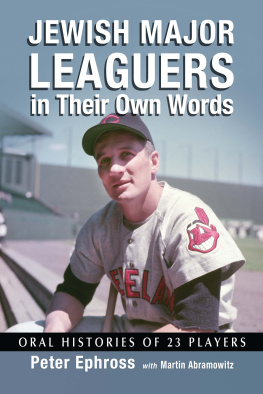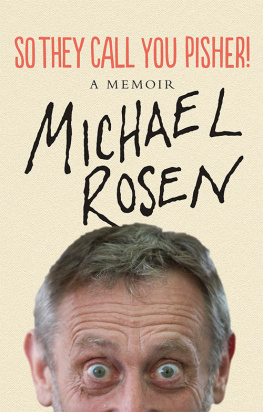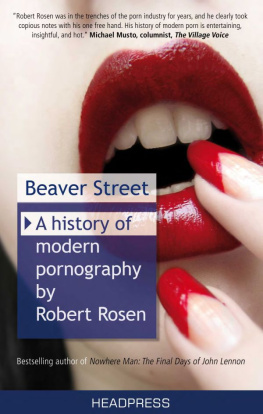Robert N. Rosen - The Jewish Confederates
Here you can read online Robert N. Rosen - The Jewish Confederates full text of the book (entire story) in english for free. Download pdf and epub, get meaning, cover and reviews about this ebook. year: 2021, publisher: University of South Carolina Press, genre: Home and family. Description of the work, (preface) as well as reviews are available. Best literature library LitArk.com created for fans of good reading and offers a wide selection of genres:
Romance novel
Science fiction
Adventure
Detective
Science
History
Home and family
Prose
Art
Politics
Computer
Non-fiction
Religion
Business
Children
Humor
Choose a favorite category and find really read worthwhile books. Enjoy immersion in the world of imagination, feel the emotions of the characters or learn something new for yourself, make an fascinating discovery.
- Book:The Jewish Confederates
- Author:
- Publisher:University of South Carolina Press
- Genre:
- Year:2021
- Rating:3 / 5
- Favourites:Add to favourites
- Your mark:
- 60
- 1
- 2
- 3
- 4
- 5
The Jewish Confederates: summary, description and annotation
We offer to read an annotation, description, summary or preface (depends on what the author of the book "The Jewish Confederates" wrote himself). If you haven't found the necessary information about the book — write in the comments, we will try to find it.
The Jewish Confederates — read online for free the complete book (whole text) full work
Below is the text of the book, divided by pages. System saving the place of the last page read, allows you to conveniently read the book "The Jewish Confederates" online for free, without having to search again every time where you left off. Put a bookmark, and you can go to the page where you finished reading at any time.
Font size:
Interval:
Bookmark:



ROBERT N. ROSEN

2000 University of South Carolina
Cloth edition published by the University of South Carolina Press, 2000
Paperback and ebook editions published in Columbia, South Carolina,
by the University of South Carolina Press, 2021
www.uscpress.com
Manufactured in the United States of America
30 29 28 27 26 25 24 23 22 21
10 9 8 7 6 5 4 3 2 1
Library of Congress Cataloging-in-Publication Data
can be found at http://catalog.loc.gov/.
ISBN 978-1-64336-247-2 (paperback)
ISBN 978-1-64336-248-9 (ebook)
Front cover illustration by Dan Nance
For Susan, again,
for her perseverance and love
To our three incomparable children
Annie, for her humor and insight
Ali, for her enthusiasm and inspiration
Will, for his exuberance and perspective
and to
Gustavus Poznanski Jr. and Isaac Valentine,
who died for their people at Secessionville
June 1862
There is only one baptism that can consecrate a man to a nationality: that is the baptism of blood shed in a common battle for freedom and fatherland.
Gabriel Riesser, a German Jewish lawyer who led the fight to emancipate Jewry in early nineteenth-century Germany

And as thou ledst thy chosen people forth
From Egypts sullen wrath, oh King of Kings!
So smite the armies of the cruel North
And bear us to our hopes on eagles wings.
Capt. Samuel Yates Levy, poem written in Savannah, November 2, 1863

In time to come, when our grief shall have become, in a measure, silenced, and when the malicious tongue of slander, ever so ready to assail Israel, shall be raised against us, then, with feeling of mournful pride, will we point to this monument and say: There is our reply.
Appeal of the Hebrew Ladies Memorial Association of Richmond, To the Israelites of the South, 1866, to raise funds for a monument to the Jewish Confederate dead

PART 1 This Happy Land, Our Palestine
FREEDOM AND EQUALITY IN THE OLD SOUTH
PART 2 Be Strong and of a Good Courage
THE SOLDIERS
PART 3 Sympathetic Soul and Busy Hands
THE JEWISH CONFEDERATE HOME FRONT
PART 4 In Our Unhappy Land
THE END OF AN ERA

THE WORLD OF THE JEWISH CONFEDERATES is a lost world. Although in the long history of the Jewish people 140 years is but the blink of an eye, both the South and American Jewry have undergone such monumental changes since 1861 that one traveling back in time must be prepared to visit a very different land populated by very different people.
My interest in this subject grew out of my curiosity about Charleston Jewry and the Civil War. In writing Confederate Charleston, I was determined to tell the story of African Americans, the Irish, and the Jews as well as the traditional story of the war. I knew that the old Jewish families had supported the Confederacy, but I was struck by the depth of their commitment to the cause. I wanted to understand why Southern Jewsmost of whom were recent immigrants who at Passover each year celebrated the Exodus from their own enslavement in Egyptwere so committed to the Confederate States of America. Like most contemporary Jews, I was struck by the apparent irony of their story. I also believed I was in familiar territory, as the focal points, I thought, would be Charleston, Savannah, and Richmond.
What I discovered was much more complex. Jewish Confederates were, for the most part, not old families at all, but German, Polish, Hungarian, and Russian Jews. There were, to be sure, many prominent old Sephardic and Americanized Jewish Confederates from South Carolina and Virginia, but the typical Hebrew or Israelite soldiers, as they then called themselves, were German-speaking immigrants from Louisiana, a state that was home to approximately one-third of all Jews in the South in 1861. There were also large communities of these immigrants in Memphis, Nashville, Mobile, and Shreveport, as well as scattered communities in Arkansas and Mississippi. But Louisiana was a phenomenon. In 1861, Judah P. Benjamin was one of the states U.S. senators; Henry M. Hyams, his cousin, served as lieutenant governor of Louisiana during the Civil War; and Edwin W. Moise had just retired as Speaker of the Louisiana House to become the Confederate district judge. Here was an unusualand unknownmoment in American Jewish history. When the war ended, Louisiana sent a former Jewish Confederate soldier, Benjamin Franklin Jonas of Fenners Battery, to the U.S. Senate to lead its fight against Reconstruction. He was the first practicing Jew in the Senate, yet no historian had ever written about him.
The Jews of the South were committed to the cause of Southern independence because they were committed to their homeland, their new fatherland. The immigrants from Bavaria, Prussia, and Central Europe, struck by the freedom they now enjoyed, repaid that gift with patriotic fervor. While Gratz Cohen of Savannah bemoaned prejudice against the Jews in the South in 1864intolerance & prejudice cast their baneful seed throughout the land, he wrote his fatherCohen did not hesitate to give to the Confederacy, in Rabbi Bertram Korns poignant words, the greatest service in his power to offerhis life. It will surprise many to know that, although there was anti-Semitism in the South, there was little anti-Semitism in the armies of Robert E. Lee and Joseph E. Johnston, or in Jefferson Daviss executive officeswhile Ulysses S. Grant and William Tecumseh Sherman issued blatantly anti-Jewish orders and proclamations. Although there were anti-Jewish outbursts in the South during the war, the Confederate South was, contrary to popular belief, the exact opposite of the image of the Old South held by most contemporary Americans.
Until recent years, the Jewish Confederates story has not been told for a variety of reasons. After the war, the South was devastated and the small Jewish population failed to adequately write its own history. More importantly, Jewish historians have focused on the bigger issues in American historyimmigration, anti-Semitism, political and economic success, and the large centers of Jewish population, primarily in New York and the Northeast. Political correctness is also a culprit. Typical is this statement by Lawrence Fuchs: Jews have been Tories, Confederates, and Know-Nothings as well as Socialists, Progressives and liberal Democrats, as if being a Confederate equated to disloyalty in the American Revolution and being a radical nativist in the 1850s.
I have tried to bring this lost Southern Jewish world back to life, to reintroduce old names and families to todays readers, and to do so without apologies. This is not without its difficulties. Modern-day Jews are very uncomfortable with the notion that antebellum Southern Jews owned slaves and that a few were in the business of slave trading. After all, Jews are unique among people in telling the story of their own enslavement. Of course, given the horror of slavery and the terrible damage and injustice it inflicted on millions of innocent people, Jewish Americans are understandably ill at ease at the mention of Israelites with Egyptian principles, as Sen. Benjamin Wade once described Judah P. Benjamin.
Font size:
Interval:
Bookmark:
Similar books «The Jewish Confederates»
Look at similar books to The Jewish Confederates. We have selected literature similar in name and meaning in the hope of providing readers with more options to find new, interesting, not yet read works.
Discussion, reviews of the book The Jewish Confederates and just readers' own opinions. Leave your comments, write what you think about the work, its meaning or the main characters. Specify what exactly you liked and what you didn't like, and why you think so.

